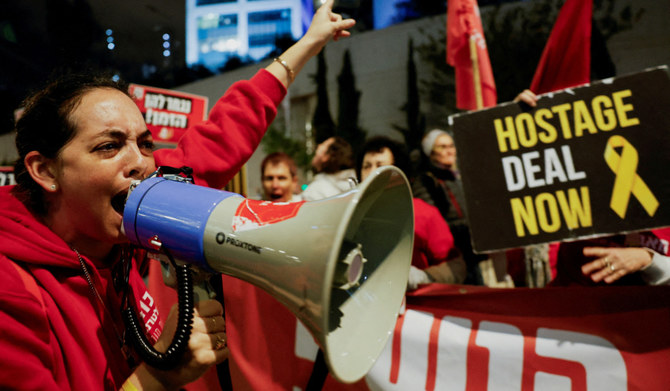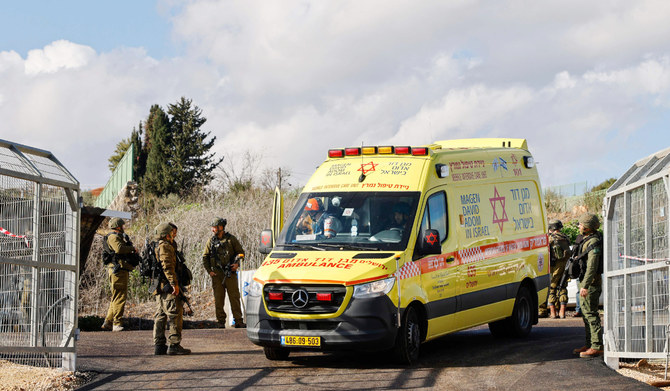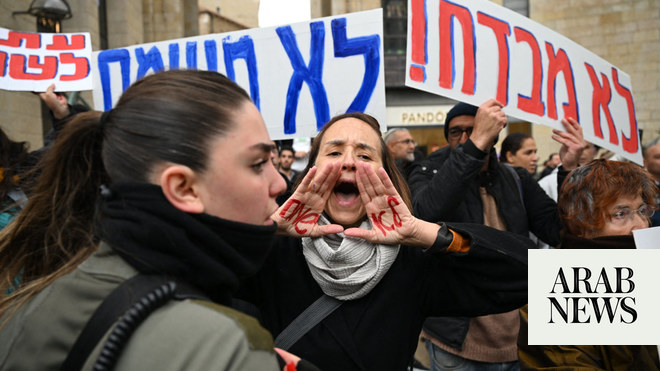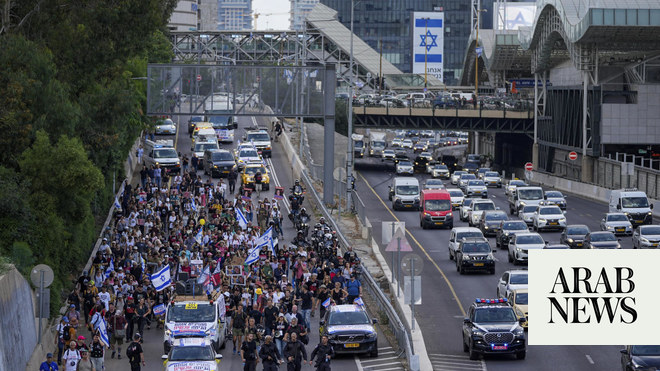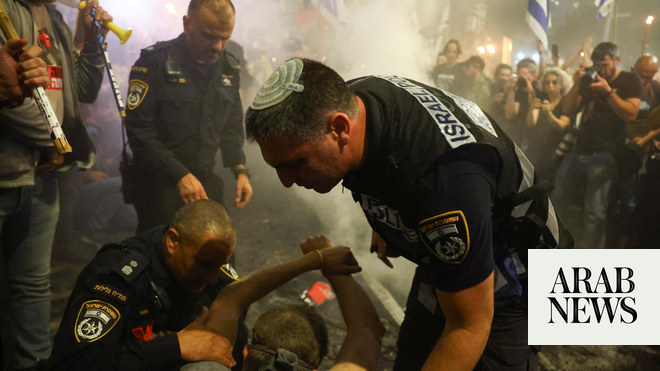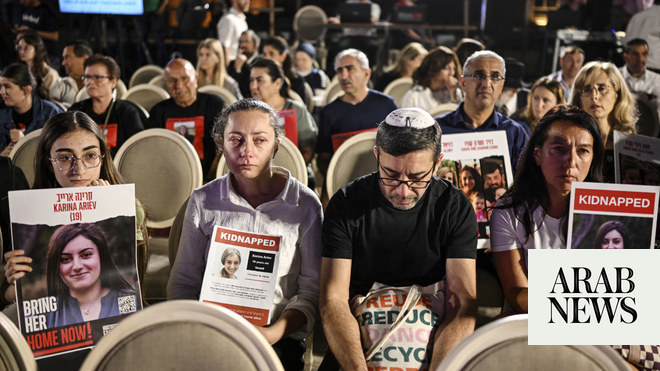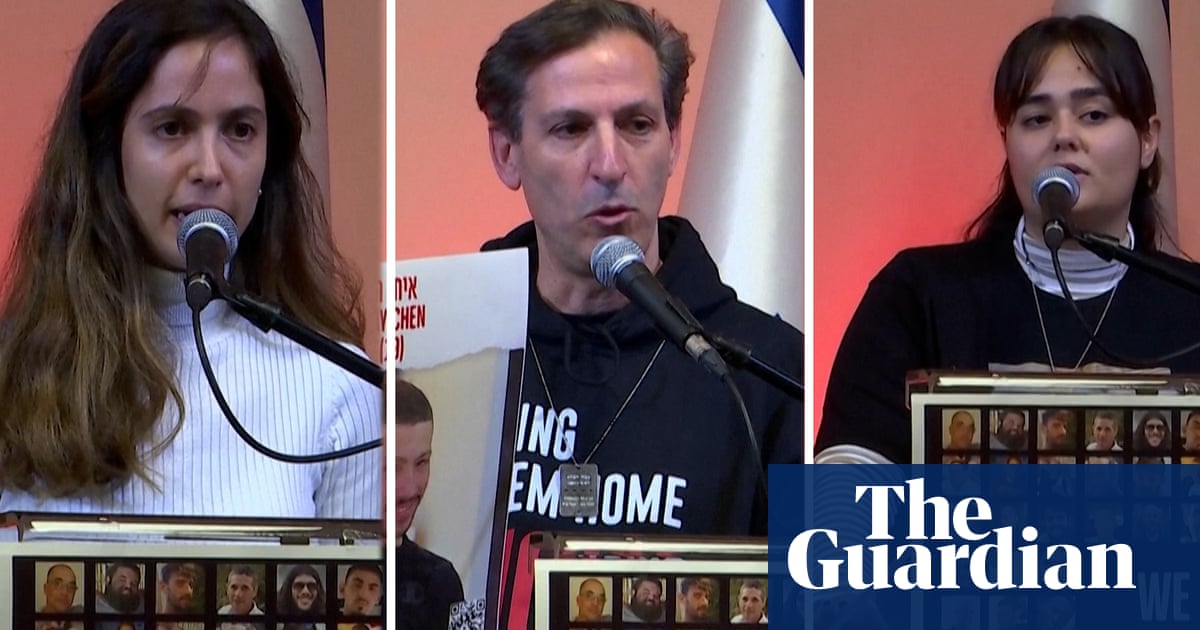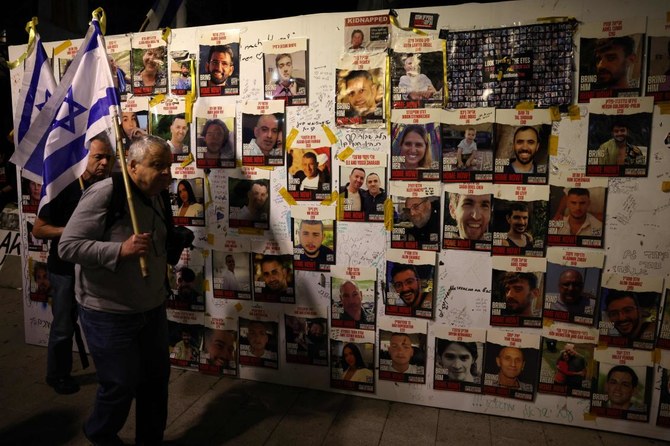
Officials believe 132 are still in the besieged territory, of whom 25 have been confirmed as dead
The fate of those still in Gaza haunts Israeli society
KIRYAT GAT, Israel: Silvia Cunio sighed deeply as she reviewed the messages in her family chat group from October 7, the last time she heard from her two sons before Hamas gunmen took them to Gaza as hostages.
“I want to hug them as soon as possible,” the 63-year-old said of David and Ariel, who are approaching 100 days of captivity in the Palestinian territory.
Israel is bombarding the Gaza Strip daily and has a stated aim of finding and freeing the hostages. Officials believe 132 are still in the besieged territory, of whom 25 have been confirmed as dead.
The fate of those still in Gaza haunts Israeli society.
Images of their faces greet travelers arriving at Israel’s main airport, on posters emblazoned with the slogan: “Bring them home now.”
Their families give interviews, press conferences, make public pleas to politicians — and have even informally renamed a square near the defense ministry in Tel Aviv “Hostage Square.”
Meanwhile, some of the hostages freed earlier in the war have gone public with stories of alleged mistreatment and sexual violence during their captivity.
The campaigners are refusing to give up on those still in Gaza. “I have hope, a lot of hope, that they will come back,” said Cunio.
Hamas militants launched an unprecedented attack on October 7 that resulted in about 1,140 deaths in Israel, mostly civilians, according to an AFP tally based on the Israeli figures.
The militants also took around 250 hostages, of whom 105 were freed, most of them during a short truce in November.
Cunio’s family were in the small kibbutz of Nir Oz at the time of the attack, just two kilometers (over a mile) from the Gaza frontier.
Twenty-five of the kibbutz residents were killed and 75 taken hostage in one of the worst atrocities of the day.
At 8:28 that morning, Ariel wrote in the chat group: “We’re in a horror movie.”
“Since that message, there has been no sign of life,” said Cunio, who worked at a laundry in the kibbutz and as a hairdresser and manicurist.
Initially, nine of her family and relatives were kidnapped.
While five have since been freed, Ariel, 26, his girlfriend and her brother, as well as David, 33, remain in captivity.
Silvia Cunio, who came to Israel from Argentina with her husband in 1986, described life in Nir Oz before the attack as like “paradise.”
Following the attack, she moved northwards to the small city of Kiryat Gat. Through tears, Cunio said she would not return to the kibbutz.
The Israeli army responded to the October 7 attack with a relentless offensive which has killed more than 23,350 people so far, according to the Hamas-run territory’s health ministry.
While the hostage families are united in their grief and longing for the return of their loved ones, there is less agreement about the prosecution of the war.
Some see tough military action as the only solution.
“I imagine the hostages will be freed in a complex military operation, not through a capitulation that will only makes us weaker,” Efrat Mor, whose son Eitan is among the hostages, told local media.
Some relatives this week went as far as lobbying the authorities at Gaza’s Egyptian frontier to stop aid convoys until the hostages are released.
But others favor a softer approach.
Sharon Sharabi, 48, whose two brothers Eli and Yossi were taken hostage, said the November truce had proved its worth.
“We can fight the war against Hamas whenever we want, but now we have to bring them back alive and healthy,” he said of the hostages.
However, relatives on both sides of the debate feel the urgency of the situation.
In Tel Aviv’s Hostage Square — the scene of concerts, events and meetings — a clock ticks off the hours, minutes and seconds the hostages have been in captivity.
A families’ group published a report on Tuesday expressing concern about the health of the hostages — some suffer from chronic illness, others have been injured.
Cunio said she just wanted the war to stop, saying it had done no good for the hostages.
“For them, every day, every second, every minute, every hour they suffer,” she said. “I’m heartbroken.”




